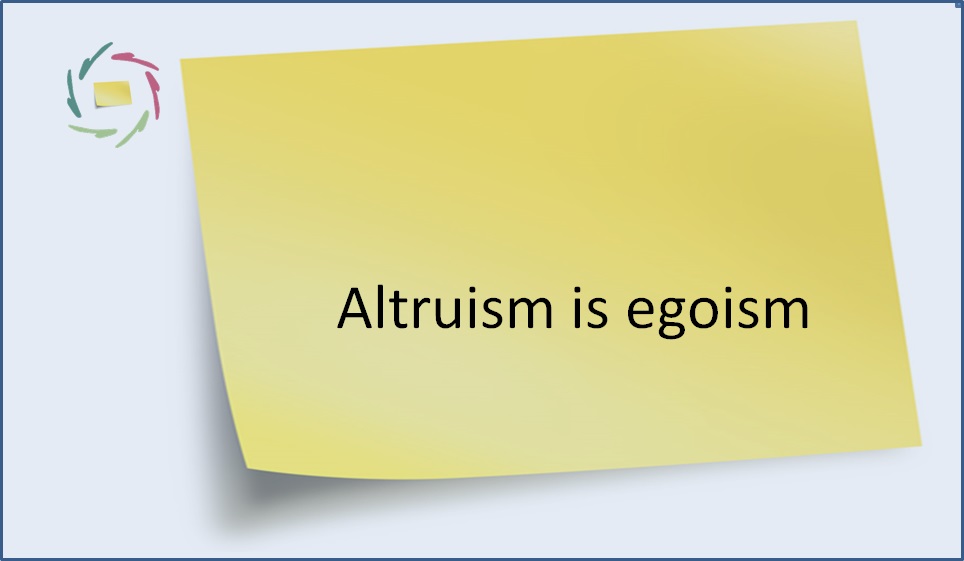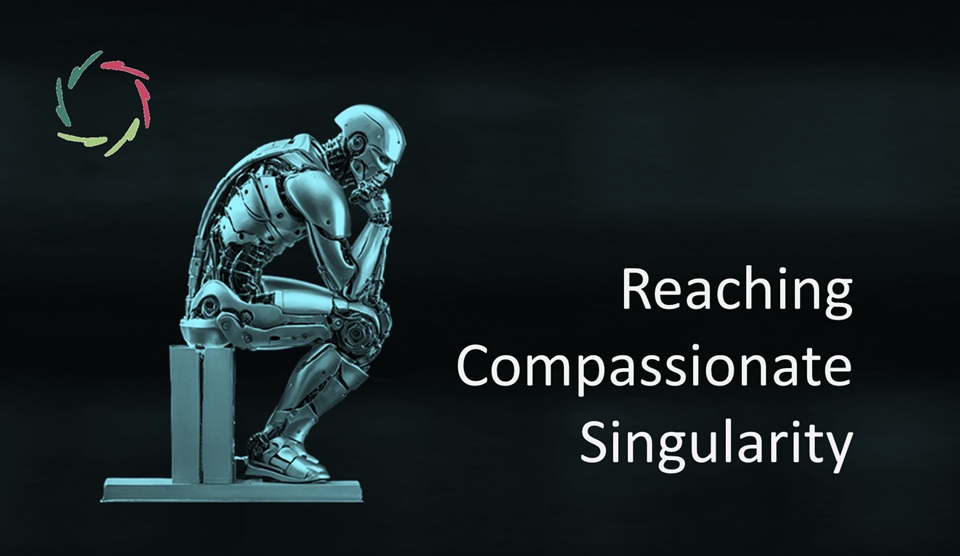68. Altruism is egoism

Have you ever heard of the Samaritan paradox? Some ‘scientists’ find samaritanism (just doing something for someone else) a very weird phenomenon because it doesn’t fit the so-called biological premise of me-first (including we-first for a group). They look upon any derivation of me-first as either having a hidden agenda or being an aberration, something like a disease. Me-versus-anything is all they know.
◊◊◊
Of course they are right to a high degree. There is a lot of me-versus in humankind, including in regard to what is mostly called ‘altruism’. Some examples. I do for you because then you do for me. I do for you because I see ‘me’ in you. I do for you because then I feel good. I do for you because one way or the other people are looking. I do for you because then I will go to heaven. I do for you because it’s good for my ‘karma’ in a next life. I do for you because then I am better than he. I do for you because I should. Etc.
◊◊◊
Does it seem like I’m becoming a grumpy old cynic?
◊◊◊
Ah, but I still feel young… even ‘forever young’. And there is something in this that is very important for this Sticky. ‘Me’ starts being young, then comes midlife crisis, then comes getting older and maybe grumpier every year. ‘Me’ gets frustrated for losing youth, then losing life. ‘Me’ wants to grab and hold. ‘Me’ readily becomes ‘me-versus’.
◊◊◊
But ‘me’ is not what a human being is. There is much, much, much more to it. The ‘scientists’ from the beginning of this sticky only see ‘me’. Well, they are completely short-sighted. Literally. Or even with a better word: short-attentioned. The moment one opens one’s attention, another world appears.
◊◊◊
The ‘other world’
◊◊◊
The boundaries of ‘me’ do not so much as disappear, but they become irrelevant somehow. There is no ‘doing for me’ anymore. There is also no ‘doing for you’ anymore. There is no ‘me-versus’. There is just ‘doing’, which is in the end always a ‘doing for’, just like that, which in the end is always a ‘going forwards’.
◊◊◊
‘If someone slaps you on the cheek, then turn the other cheek.’
◊◊◊
This is no pacifism, nor weakness, nor calculation in order to get some other advantage in this life or the next one. Also, it is certainly not a lack of reaction. The ‘other cheek’ might even come down rather hard! It’s also not a rule-to-follow, but a description, namely of what I just came to in this Sticky. ‘Me-versus’ gets slapped on the cheek and wants to burn down the city for that. To the forever young one however, it’s as if he himself did the slapping. His next action is in sync with this, nothing more. There is no revenge, although from the outside it may look like it. Likewise, there is no altruism, nor egoism. There is only this: a complete human being.
◊◊◊


